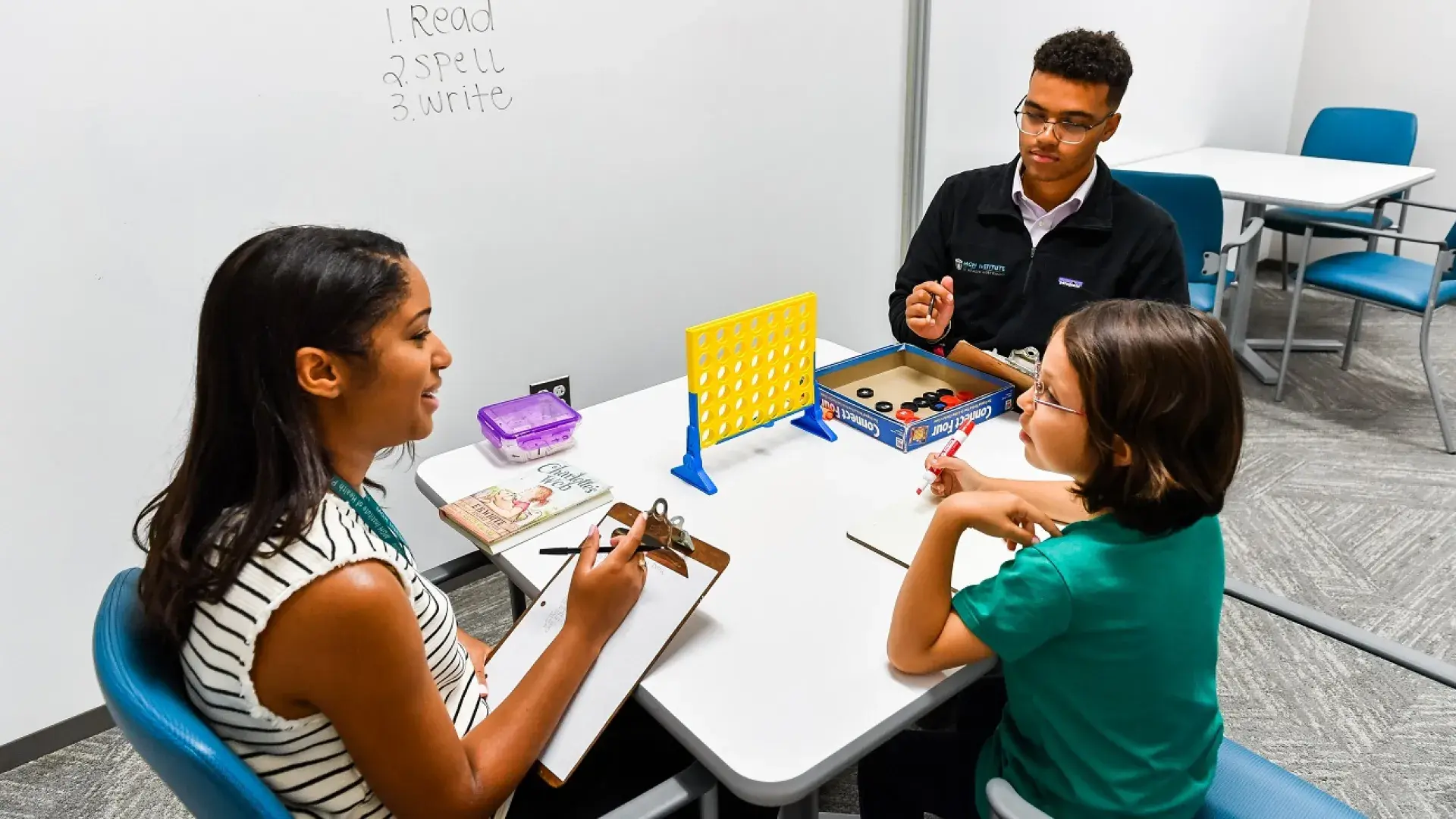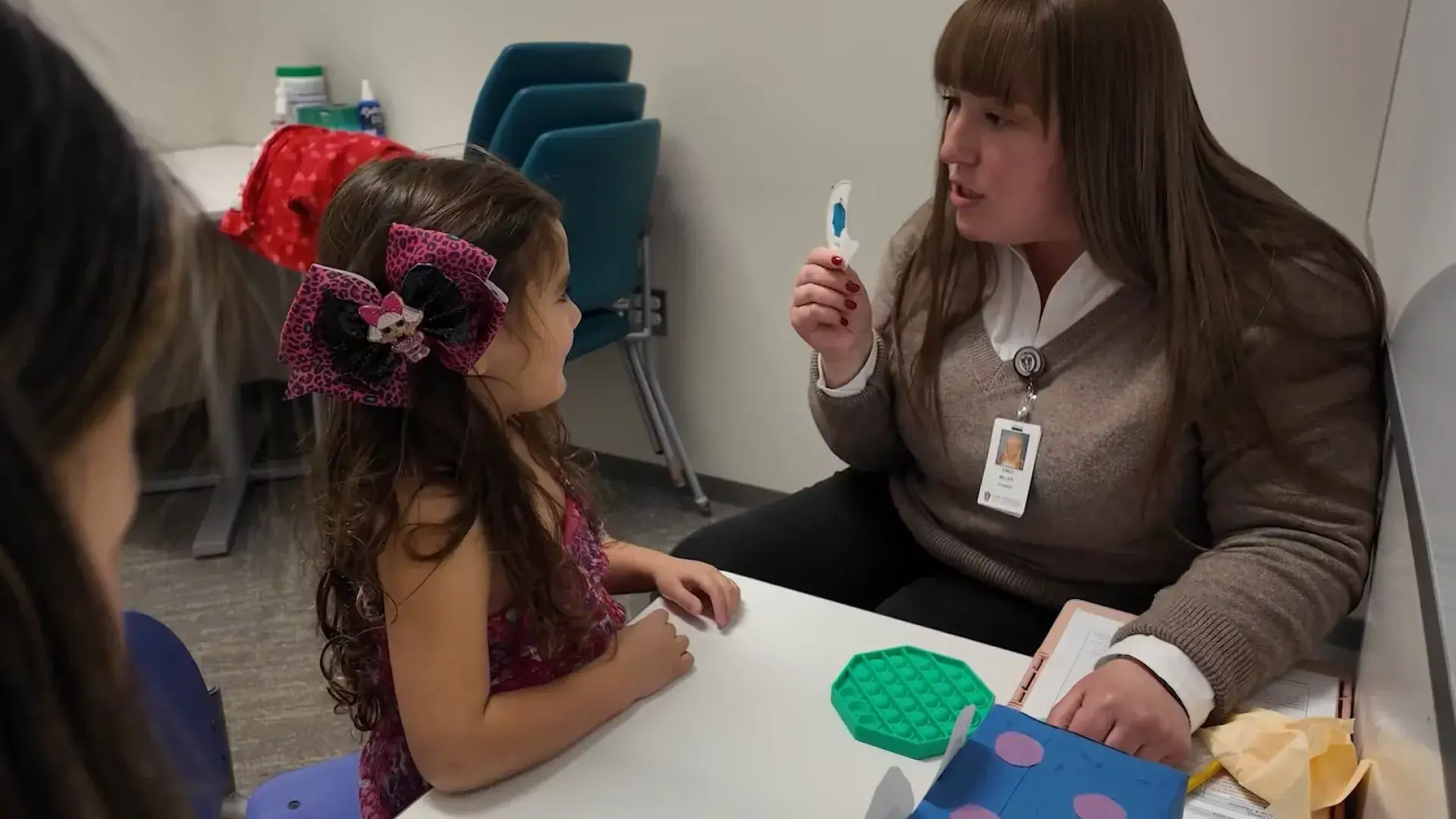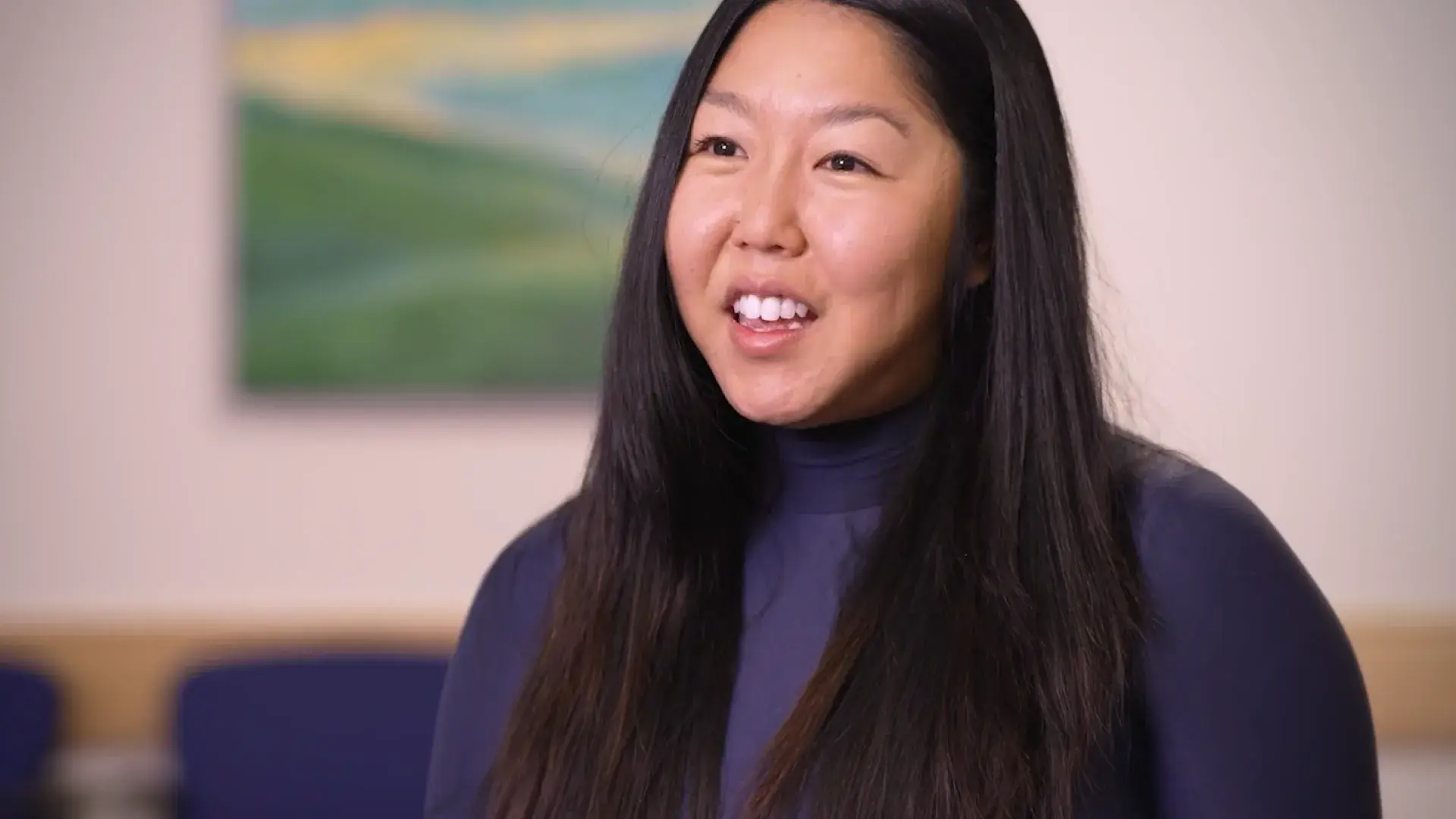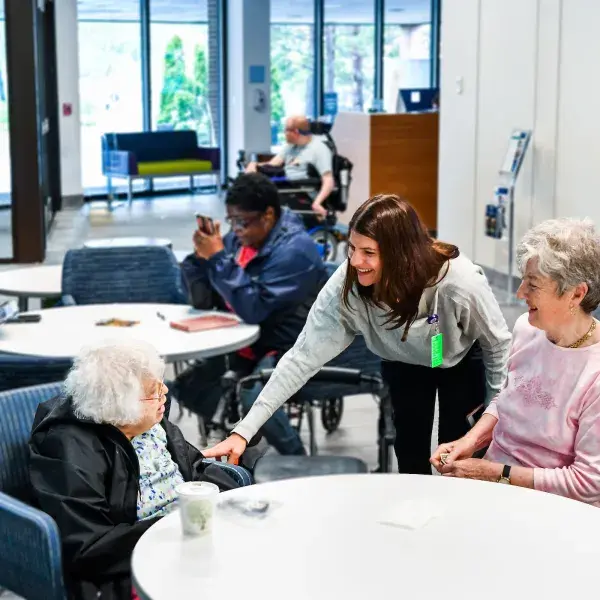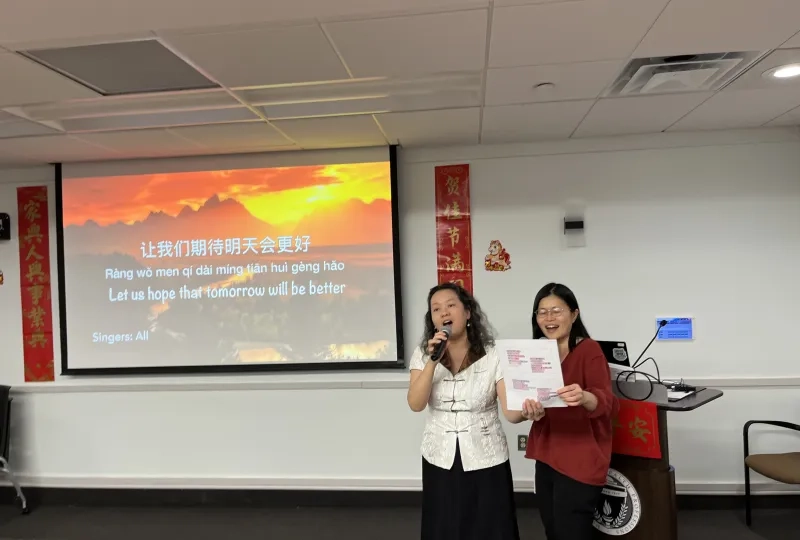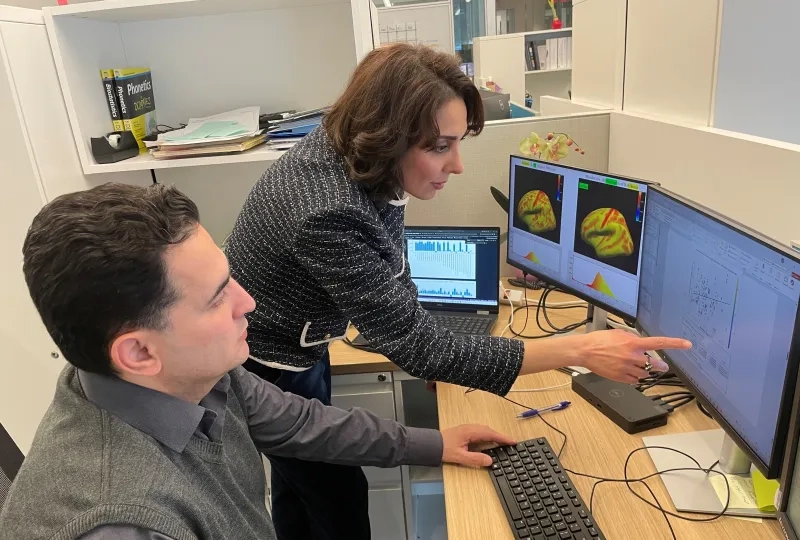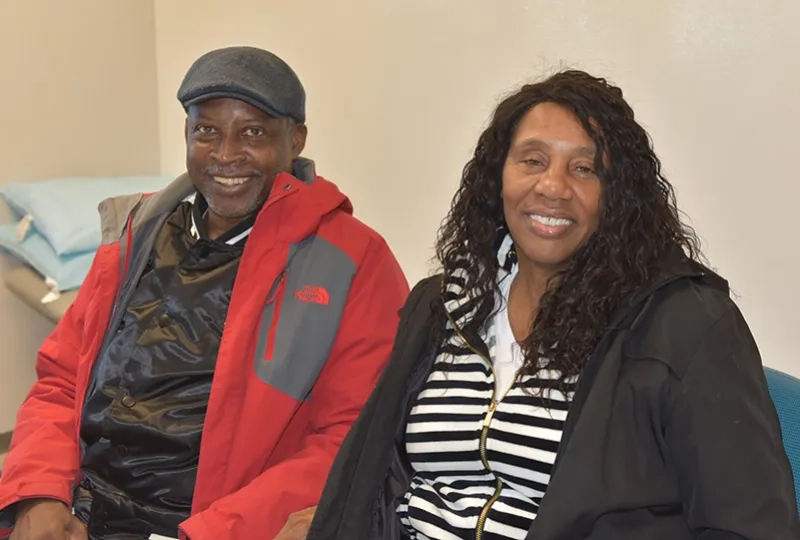
Rebuild Communication Skills with Advanced SLP Training
Our Master's in Speech-Language Pathology program prepares you with the critical thinking and speech-language clinical competencies to work in any setting.
In our comprehensive 69 credit program you will develop skills in the breadth and depth of speech-language pathology, and have the opportunity to specialize in one of six areas of concentration. We are the only program in Massachusetts offering dual licensure in reading and speech-language pathology. Mass General Brigham clinicians bring their real-world expertise from clinic to classroom, ensuring a unique and tailored educational experience.
